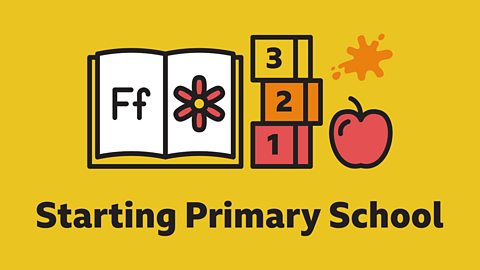This article was first published in August 2019
by Laverne Antrobus, Child Psychologist
The summer holiday offers a fantastic window of opportunity for all children to enjoy playing and relaxing. But for children starting school, there are plenty of opportunities along the way to prepare for the transition to school.
Over the next few weeks help them to prepare so they feel ready for the job of being focused learners who are equipped to enjoy the challenges and excitement of school life. Being confident on the first day will be a huge boost and help children to start with a positive attitude.
1. Get talking
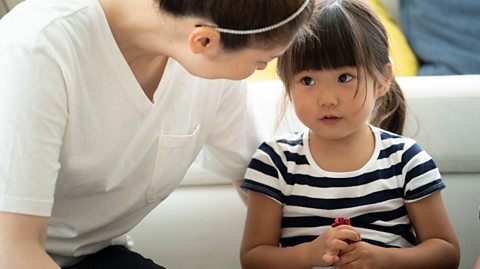
Start talking about school. Being able to visualise what school will actually be like is a good place to start. Lots of schools offer a pre-visit, so itãs great idea to take your child on a pre-visit and then talk afterwards with your child about the visit to encourage them to remember what the teacher said. It will give them a good sense of what might happen on their first day.
Talk about the journey to school and what they will need to remember to pack in their school bag. The more a child can start talking about the whole experience of being at school the more they will have rehearsed it in their minds and the more confident they will feel.
2. Talk to siblings and friends
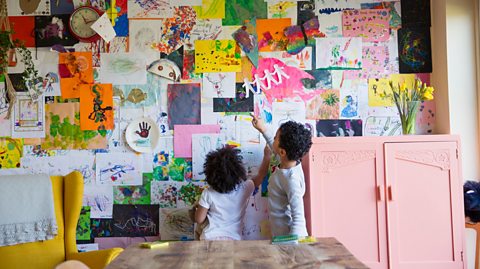
Getting children to speak with siblings or friends can give them a different point of view and may allow them to ask questions about what it is like to have a new teacher and to make new friends. Being able to speak to a younger child will more likely settle any worries they have as they realise that all children have similar questions.
3. Practise important skills
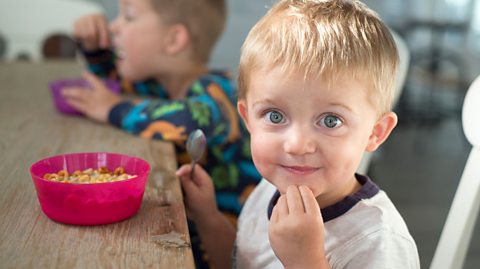
Remember practice makes (almost) perfect, and there are key skills that a child should be working hard to master. These range from showing they have good social manners by saying ãpleaseã and ãthank youã, to being able to sit at the dining table to eat their breaktime snack and lunch.
These last few weeks are also a good practising zone for things like washing and drying hands before eating, trying to use the right cutlery and keeping bottoms on chairs when eating. Every time these skills are seen, offer praise to your child to keep these behaviours going, and remind them that the teacher will also be looking out for these skills.
4. Look out for social skills
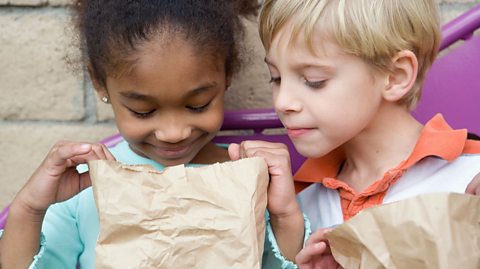
Making and keeping friends can often be a huge challenge. Itãs good to remind your child that others in their class may also be feeling a bit unsure and so saying hello, smiling and asking another child if they want to play is a good place to start.
Over the summer holidays, why not try to create opportunities when your child can mix with other children. This could be playing with their siblings or with their friends. Sharing is an important skill, so encourage them to ask others if they would like to play with them, especially if they see a child who looks shy or upset.
If however, your child is shy (and plenty of children are, so please donãt worry!), this may involve supporting them that little bit when they are with other children. For example, you could make suggestions about games they play well that they could ask others to join them in.
5. Establish good routines
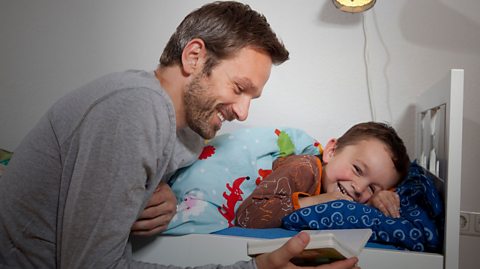
Being able get in to a good routine with your child is also important and creating good habits early on during the holidays will really help. As you do this, itãs also a nice idea to have a calendar that gives them a visual reminder of how many weeks/days are left before they start school.
A good night time routine is a great example: children who get the right amount of sleep will be ready for learning and the rigours of all aspects of school life and they will be able to focus during what will initially feel like long days at school. So, get in to the habit of getting your child settled and ready for a good nightãs sleep.
A good bedtime routine that includes a chat about the day and a story will start what will most probably be a routine that guides them through the early primary school years. This time will also help children develop a way of reflecting on the day, naming the things that went well and planning how to tackle the more tricky aspects of being at school which might be learning a new skill, developing friendships and feeling confident.
6. Get things ready
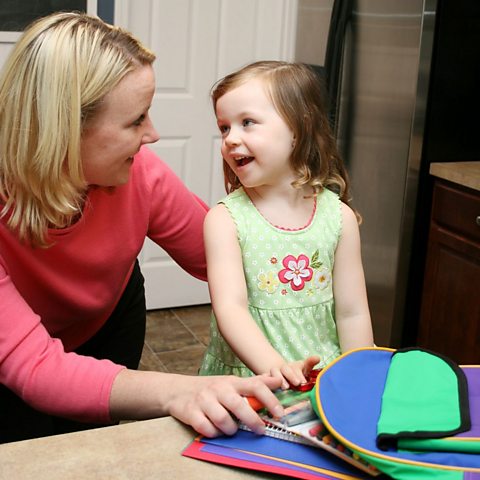
All children want to feel that they have the right equipment when they start school - from a pencil case to a lunch box. Help your child to make a list (they can draw the items) of all the things they will need for school ã you could even make a game of finding some of the items around the house. Then, plan the trip to buy everything. Remember that labelling clothing and equipment will also help children feel that they know what belongs to them, which can help children feel organised.
Getting ready can also be about anticipating meeting different people. Up until this point children may have been in smaller settings ã for example a small nursery, so in going to a bigger school they will encounter lots of different children which will be new to them. So, help your child look forward to meeting new people, and help them be open to the differences there might be between themselves and others. will help them feel part of a rich and diverse society, where everyone can feel they belong.
7. Take time to listen

Children need time and space to talk about what they might be excited about or what may be worrying them. These worries may not be obvious - for example, your child might be a bit quiet when school is mentioned, or their behaviour may seem out of character and a bit more difficult. A listening ear is always helpful to get worries out in the open, and particularly if a child is encouraged to speak without interruption. Worries about leaving parents at the school gate, not knowing what to do when they get to school and making friends are common.
Once worries are shared, take them seriously but also ask if they have any ideas about how to manage these worries. For some children, just having the chance to say what is on their mind is really helpful. For other children, learning positive self-talk is really helpful and itãs a skill that all children can be helped to develop. Try to help them spot when they come up with solutions to some of their worries. Also, always reassure children that any big worries can be shared with their teacher ã this helps them know that he or she is looking out for them.
All of the preparation ahead of starting school will help children to develop the emotional and psychological resilience that everyone needs. The earlier a child can be helped to feel successful and supported in all they do, the easier it will be for children to be ready for life-long learning. This learning will help them understand that to feel happy it is key to build good relationships by treating others with respect. Helping your child feel confident in the run up to their first day will help them feel that this new experience is one that they can manage and enjoy. But donãt worry if this doesnãt happen straight away ã all children develop skills at different speeds; the main thing is to make sure that you child knows they are supported by you, and then they can settle in at a speed that is right for them.
For further information check out the rest of which has lots of ways to help prepare children for different aspects of school life ã both practically and emotionally.
This article was published in August 2019

More from ôÕÑ¿å¥éá Bitesize Parents' ToolkitãÎ
Parents' Toolkit
Fun activities, real-life stories, wellbeing support and loads of helpful advice - we're here for you and your child.

Game - My First Day at School
Explore with your child what their first day of school might be like and play some classroom activities.
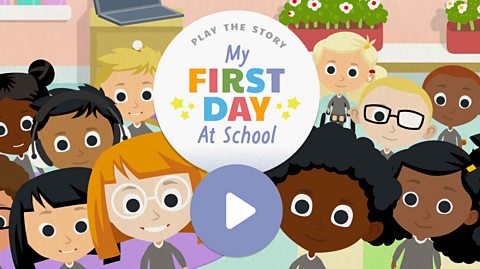
Are you emotionally ready for the first day of school?
How will your child's first day at school feel for you? Here are some top tips to cope with the transition from Child Psychologist Laverne.
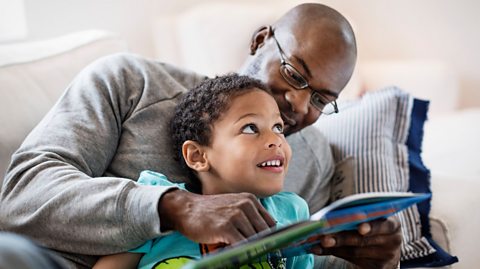
Top tips for toilet training
Early years consultant Helen Stroudley gives some top tips for getting your child toilet trained before starting primary school.
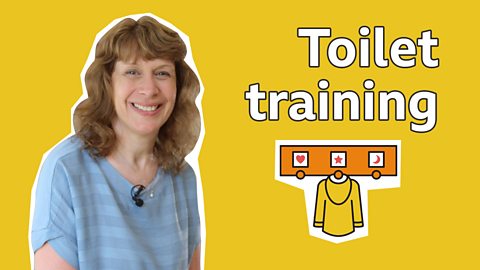
How to help your child transition from home to school
Early years expert Helen Stroudley explains how you can help your child transition from home or nursery to primary school.

More Starting Primary School videos and articles
Head to our homepage to help you and your child prepare for starting primary school and thrive in school life.
